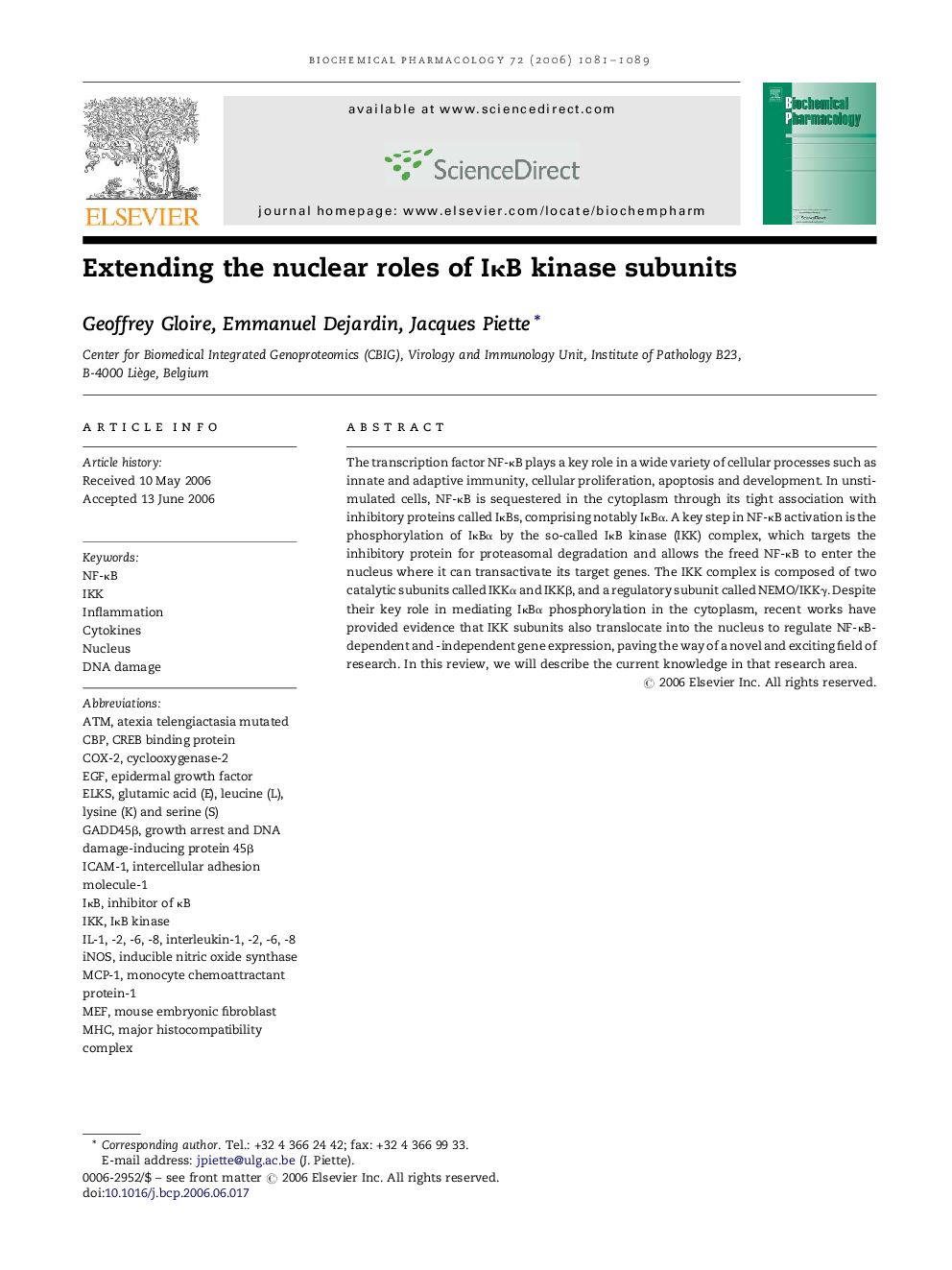| Article ID | Journal | Published Year | Pages | File Type |
|---|---|---|---|---|
| 2515358 | Biochemical Pharmacology | 2006 | 9 Pages |
The transcription factor NF-κB plays a key role in a wide variety of cellular processes such as innate and adaptive immunity, cellular proliferation, apoptosis and development. In unstimulated cells, NF-κB is sequestered in the cytoplasm through its tight association with inhibitory proteins called IκBs, comprising notably IκBα. A key step in NF-κB activation is the phosphorylation of IκBα by the so-called IκB kinase (IKK) complex, which targets the inhibitory protein for proteasomal degradation and allows the freed NF-κB to enter the nucleus where it can transactivate its target genes. The IKK complex is composed of two catalytic subunits called IKKα and IKKβ, and a regulatory subunit called NEMO/IKKγ. Despite their key role in mediating IκBα phosphorylation in the cytoplasm, recent works have provided evidence that IKK subunits also translocate into the nucleus to regulate NF-κB-dependent and -independent gene expression, paving the way of a novel and exciting field of research. In this review, we will describe the current knowledge in that research area.
